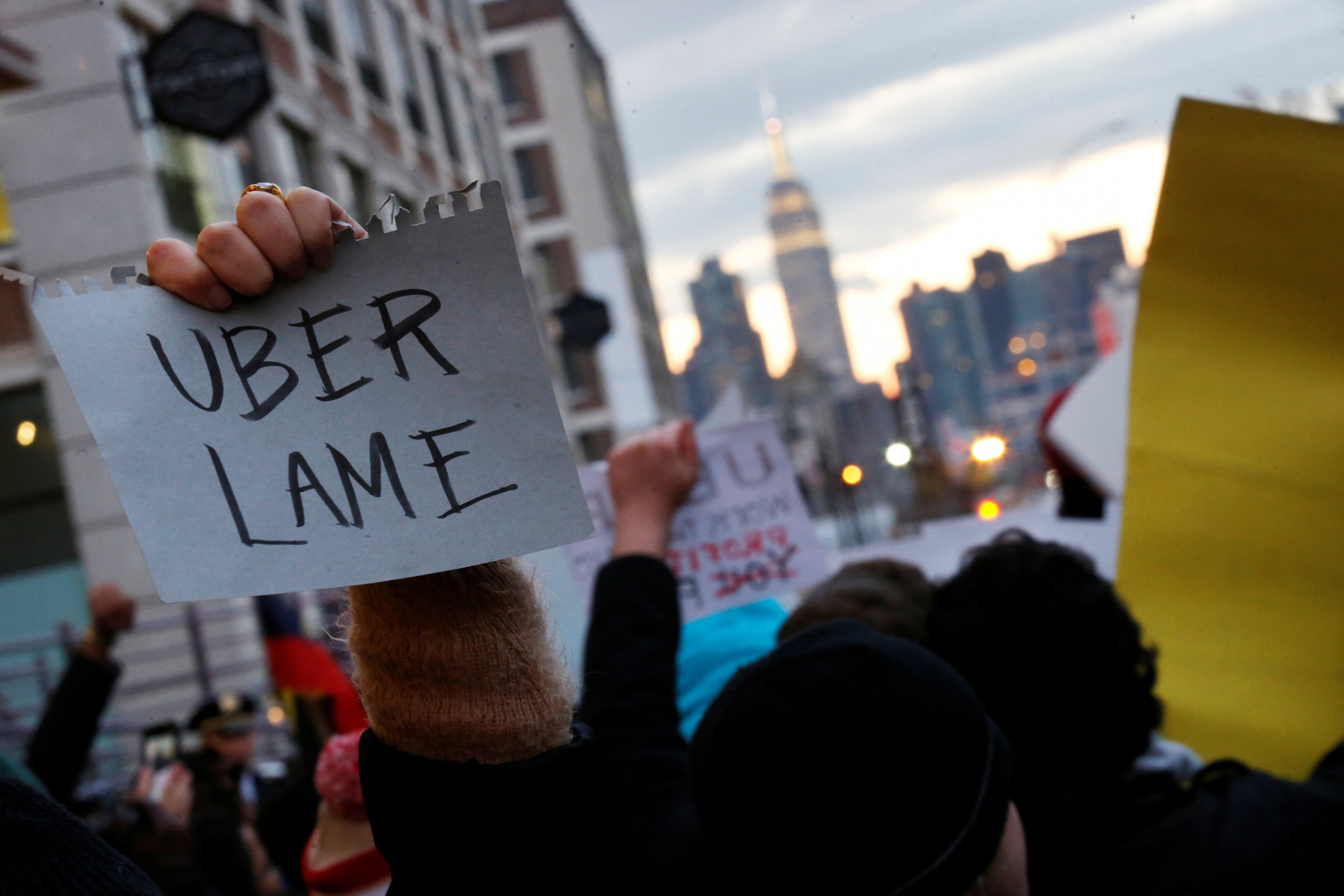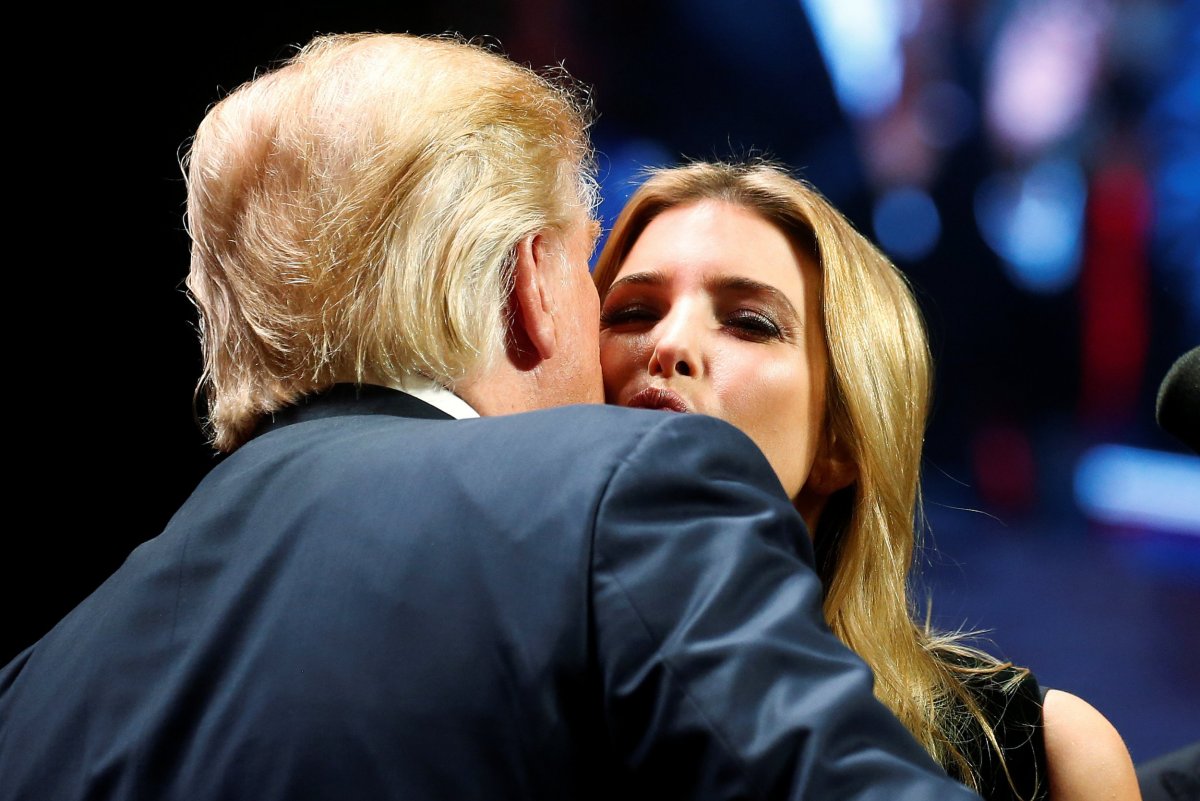
The world economy and consciousness is dominated by big brands. Apple, Google, Disney, Wal-Mart and Nike are among the long list of leading popular culture symbols. Lesser brands, in some new understanding of geo-politics, need to evolve their relationship to larger brands. Now the biggest world-wide brand is Donald Trump.
Much of the early Trump drama is rightly seen as a clash between individual and institution—a path to all sorts of potential crises. But it's a new, weirder sort of clash when it's between institution and brand. Even the actors are confused. It might not even be clear to the president, who often speaks of himself in the third person, what his true role is and who he most of all represents (perhaps one reason why he has seemed so uncomprehending about the range of his possible business conflicts).
RELATED: Inside the war between Trump and the media
Last week, in a brand squabble, Trump criticized Nordstrom's for insulting his daughter Ivanka's Trump brand. Presidential counselor Kellyanne Conway soon rushed to equate, not unreasonably, brand attack with political attack, running afoul of all sorts of rules which never anticipated the convergence of brands and government. This has been particular hard on interpreters of political meaning, pundits, editors, academics and wonks. Is it would-be autocracy? Is this the face of modern authoritarianism? Or, is it that we haven't yet found the name for and understood the nature of branded government?
My daughter Ivanka has been treated so unfairly by @Nordstrom. She is a great person -- always pushing me to do the right thing! Terrible!
— Donald J. Trump (@realDonaldTrump) February 8, 2017
It also is hard on brands themselves, which, seeking to deal with government, finds they are dealing with another brand—presenting quite a different set of strategic issues. The business community, seeking stability above all else, has been inclined to give the Trump White House the benefit of the doubt (after all, the stock market continues to rise). Government and business have a complex and necessary relationship, and, best for everyone—or best for the center-holding—seek an orderly one. The world is as it is, and we do business in it.
Stephen Schwarzman, the billionaire head of the Blackstone Group, and distant Trump social acquaintance in New York, proposed—in part magnanimously, in part opportunistically—to assemble a business advisory counsel for the new president. Such counsels have long been the business community's reflexive show of good will, signifying nothing more than business as usual. But what would ordinarily be a political relationship—that is, the process of getting something from government and pushing various business agendas—now seems like a brand relationship. Schwarzman and his counsel, which includes brands such as Coke, Disney, Tesla, General Motors, Wal-Mart and Uber, instantly became Trump brand partners. It's an identity relationship more than a political one.
Hence, on inaugural morning, Uber employees woke up to find people chained to the doors of their San Francisco headquarters. The charge was that Uber chief Travis Kalanick was "collaborating"—with its whiff of Vichy and of all sorts of brand relationships (Uber collaborating, for instance, with Spotify)—a much different status than a business looking to such forums as a way to influence the government. Indeed, the protestors who believed they were seeing this in political terms were actually seeing this in conventional brand terms, and zooming in on the disconnect. Uber's customer base is strongly young, urban, progressive, and therefore out of sync with the Trump base.
Kalanick saw his presence on the counsel as a way to advance Uber's goal of being able to employ people who might have had prison records, and of helping to ease the process of partnering with transit systems (that is, to fill gaps that mass transportation can't). And, certainly, if the Trump administration is serious about its trillion-dollar infrastructure investment that would seem like something the nation's biggest transportation company would want to have a say in. But brand-conscious millennials saw this as beyond policy dickering and as part of an epic identity clash. In this, the Trump White House stands less for government, and the push-pull of competing interests and developing policies, and more, in a brand-savvy world, as a fixed marketplace and cultural symbol. Trump means Trump, a clear and simple message rather than a politically complicated and plastic one.
For Kalanick and Uber, the damage got worse and the connection stronger when Trump's immigration ban sparked big protests, prompting the hashtag #deleteuber—costing the company 200,000 customers. (The effect here was to help competing ride-share brands whose only political difference from Uber was not to have a direct brand association with Trump.)
When Trump praised a member of the L.L. Bean family for her support, it was as though the company—which hurried to undo the endorsement—instantly became L.L Bean & Trump. The sportswear company Under Armour's CEO Kevin Plank, also on the Schwarzman counsel, offered a positive view of Trump in an interview, prompting a social media conniption and hence the company having to reaffirm its brand allegiance to liberal ideals.
And, quite at lightning speed—immediately quieting the protests—Kalanick resigned from the Schwarzman counsel (Bob Iger, Disney's CEO, simply found he was otherwise occupied on the occasion of its first meeting), and shortly joined almost 100 other tech companies in urging the courts to block Trump's immigration orders.

Indeed, an emerging marketing tactic among urban, upscale, millennial brands is a dramatic distancing from the Trump brand—including a recent ad campaign in the UK by the soap-maker, Dove, mocking alterative facts. While anti-Trumpers castigated Trump for using his presidential might against Nordstrom when it ejected Ivanka's shoes, this, no doubt, is quite a brand coup for Nordstrom. Conway's interpretation of Nordstrom's move against Ivanka as a political act was probably off—it was politics only in so far as it was also a smart branding move. While there are brands that might cower from Trump brand wrath—a late-night tweet swipe—there are others who will court it. (Branding experts everywhere are undoubtedly honing their Trump-baiting strategies.) Equally, it's reasonable to imagine a whole set of pro-Trump brands prospering in the pro-Trump demographic.
In this, it is possible, and probably wise, to see the Trump election and its result as the ultimate product of a branded universe. Trump's attractiveness to many is not just that he isn't a politician, but that his identity has come from a process we may well trust more than politics, that peculiar science of ubiquity, persistence, media, signage and larger-than-life meaning called branding. If there were a Mr. Google he could be a very plausible candidate.
Part of the ongoing struggle now, rather a mind-exploding one, is to separate the brand's interest and identity from the function of actually governing. That's confusing for the Trump people, who may not be sure exactly what they are selling, and it's confusing for the anti-Trumpers, unable to separate the nuances of policies from the identity and promotion of the brand.
And then, too, there is the actual person at the center of this, with, no doubt, his own confusions about being man or brand. But, likely, the branded world itself, while as surprised as everyone by this strange turn in politics, will figure it out and make lemonade.
Uncommon Knowledge
Newsweek is committed to challenging conventional wisdom and finding connections in the search for common ground.
Newsweek is committed to challenging conventional wisdom and finding connections in the search for common ground.
About the writer
To read how Newsweek uses AI as a newsroom tool, Click here.








